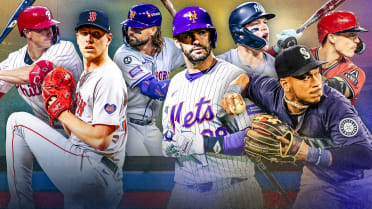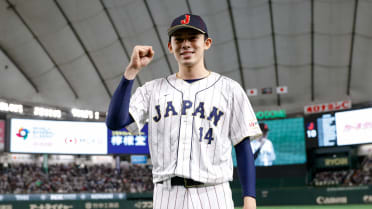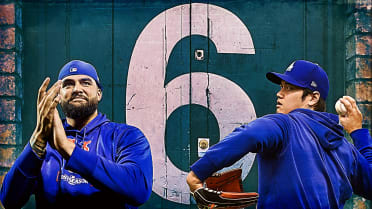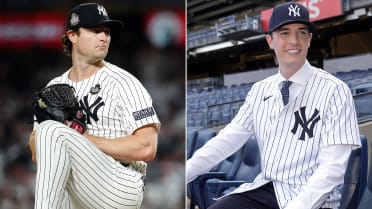Understanding the Angels' waiver moves
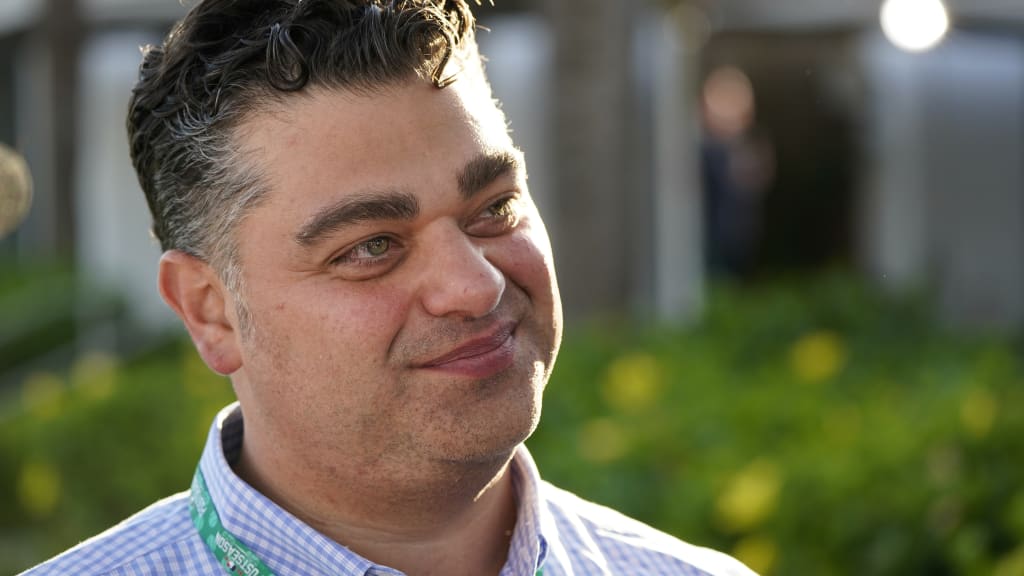
This story was excerpted from Rhett Bollinger’s Angels Beat newsletter. To read the full newsletter, click here. And subscribe to get it regularly in your inbox.
It’s understandable to be confused by the waiver process, especially in August, given that trades can’t occur after the Aug. 1 Trade Deadline anymore.
Even right-hander Lucas Giolito and lefty Matt Moore admitted they didn’t quite understand what was happening when they first were told they were placed on waivers before Tuesday’s game. Giolito wasn’t fully sure if he was still on the active roster and Moore thought it was a joke when he first saw the social media post from ESPN’s Jeff Passan.
Giolito and Moore were among six players placed on waivers by the Angels on Tuesday, joining Reynaldo López, Dominic Leone, Randal Grichuk and Hunter Renfroe. Five of those players were claimed on Thursday, as the Guardians claimed Giolito, Moore and López, the Reds claimed Renfroe and the Mariners claimed Leone.
The roster will look a lot different on Friday, as they’ll have to replace those five players and will have two September callups.
Here’s more on what exactly the Angels did and why they did it:
How exactly did waivers work in this scenario?
Before 2019, trades could happen after the Trade Deadline, as players placed on waivers could be claimed and traded, or players that cleared waivers could also be acquired via trade. But that process was changed, as trades can’t be completed after the Trade Deadline and once a player is on waivers, they can’t be pulled off waivers.
The waiver process also used to start with league affiliation, as the AL teams would’ve had the first chance at players waived by the Angels, but now it’s all MLB clubs in the reverse order of the standings. Teams can claim as many players as they want but they can’t do it for the purpose of blocking another club. So for example, the Guardians can’t designate any of the players they claimed for assignment after claiming them just to block the Twins. The claiming team is also on the hook for the player’s salary for the rest of the season.
Why did the Angels place the six veterans on waivers?
The Angels went for it ahead of the Trade Deadline, acquiring players such as Giolito, López, Leone, Grichuk, C.J. Cron, Mike Moustakas and Eduardo Escobar. But as soon as the calendar hit August, the Angels went 8-19 and fell out of postseason contention.
The trades they made put them over the competitive balance tax threshold, which would have ramifications going into next year. But by shedding those contracts in September, the Angels save roughly $5.7 million, according to Spotrac, and get back under the luxury tax.
It also allowed those players a chance to play for a contender down the stretch. None of the players were going to be extended a qualifying offer this offseason either, especially because they can’t be offered to players acquired in mid-season trades, so there’s no risk of losing future Draft picks.
Why is important to be under the luxury tax threshold?
The luxury tax is subject to an increasing tax rate depending on how many consecutive years a club has been under the tax, so the Angels now reset back to year zero. But in the first year, it's a 20 percent tax on all overages, in the second consecutive year, it's 30 percent, and for a third straight year or more, it's 50 percent.
The Angels can now go over the luxury tax again next year without being repeat offenders. And if two-way superstar Shohei Ohtani rejects a qualifying offer and signs elsewhere this offseason, the Angels would receive a pick after the second round of the 2024 Draft instead of after the fourth round. And if they sign him to an extension and go over the luxury tax, they have more flexibility going forward, as they’d be in the first year of the penalties instead of year two.
How was it received by Angels players?
The waiver process is supposed to be confidential, so the Angels were less than thrilled that the news leaked Tuesday night. The optics obviously aren’t great, as the club essentially waved the white flag on the season despite being aggressive at the Trade Deadline.
But Angels players understand it’s a business and Giolito said it best when he said sometimes it’s a strange business. They know that if they performed better as a group this wouldn’t have happened. But it still made for an awkward day on Tuesday, especially with all six players finding out shortly before the game. Grichuk was the only one unclaimed and will remain with the club and is likely to speak with the media on Friday.
Did other clubs do this?
Not to the same extent as the Angels but there were several other veterans placed on waivers such as Harrison Bader by the Yankees, Carlos Carrasco by the Mets, Jose Cisnero by the Tigers and Mike Clevinger by the White Sox. Bader ended up getting claimed by the Reds.
But other teams didn’t have the same incentive to get under the luxury tax as the Angels and this could be the start of a trend for non-contending teams looking to shed salary or get under the CBT in future years.
Senior Reporter Rhett Bollinger covers the Angels for MLB.com. He previously covered the Twins from 2011-18.

